THE GRADUATE UNION NEWS LETTER

14
16
18
19 Organisations’


14
16
18
19 Organisations’
03,
Wednesday
BRIDGE NIGHT
7:15pm – 9:30pm
Join us for Bridge Nights every Wednesday evening. All levels of bridge players welcome. Player fees: Members $2, non-Members $5. Food and beverages at bar prices.
10 Wednesday
APRIL LUNCHEON
12:00noon – 2:00pm
With guest speaker Dr Ross McMullin. Details are on page 3.
12 Friday
SPECIAL ESPRESSO COFFEE FOR INHOUSE RESIDENTS
7:30am – 8:30am
Special breakfast beverage for residents at Graduate House. Free for Resident Members.
17 Wednesday
WOMEN’S FORUM
10:00am for 10:30am start
The topic of this forum is “The Impact of Social Media Devices”. Come along and join a friendly group of ladies in a . You are welcome to stay for lunch after the Forum.
18 Thursday
TWILIGHT LECTURE
5:30pm for 6:00pm start
This is the first Twilight lecture for 2024. Stop in after work to enjoy some stimulating food for thought, served as a combo with drinks and nibbles and enjoy the lecture from 6:00pm to 7:00pm, with guest speaker The Honourable Jennifer Coate AO.
12:00pm for 12:30pm start/ Online login: 1:10pm for 1:15pm start
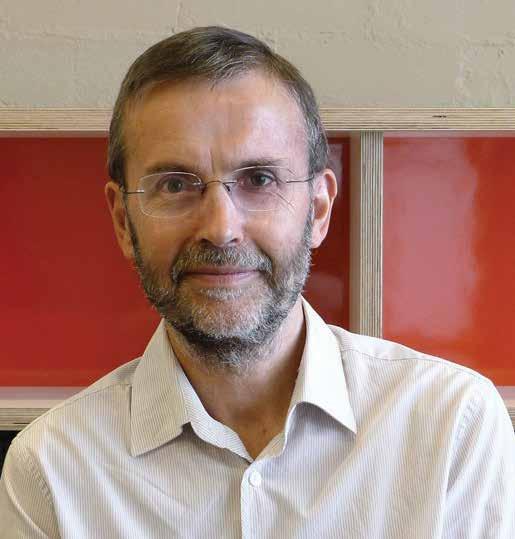
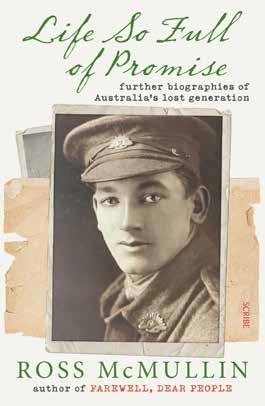
Ross McMullin is an award-winning historian and biographer, a renowned storyteller and an entertaining speaker
His mul�-biography Farewell, Dear People was awarded the Prime Minister’s Prize for Australian History, and in his new sequel Life So Full of Promise, Ross has again combined prodigious research and narra�ve flair in a collec�on of interwoven family stories about forgo�en Australians who had radiant poten�al.
The rich cast of characters in Life So Full of Promise includes a popular doctor, a brilliant cricketer (Ross played firstgrade District cricket for The University of Melbourne), and an excep�onally talented graduate — also from The University of Melbourne — who was a poten�al prime minister.
With their families and friends also conspicuous in the narra�ves, Life So Full of Promise is a revealing window into this defining era for Australia. It illuminates what the war was like at home and at the sharp end.
Come and hear Ross talk about Life So Full of Promise. You’ll be enlightened, entertained and moved as he brings these extraordinary yet unknown Australians back to life. Life So Full of Promise has been shortlisted for a na�onal prize, the Nib Literary Award.
https://rossmcmullin.com.au
5:30pm for 6:00pm start/ Online login: 5:50pm

Shining a light on the sexual abuse of children in institutional settings: What did we learn?
Prior to the nationwide Royal Commission into Institutional Responses to Child Sexual Abuse which commenced in 2013, there had been a long line of inquiries into various aspects of the sexual and other forms of abuse of children in institutional settings. However, the groundswell of support for a national inquiry gained momentum with the number of high-profile examples of failed institutional responses to child sexual abuse.
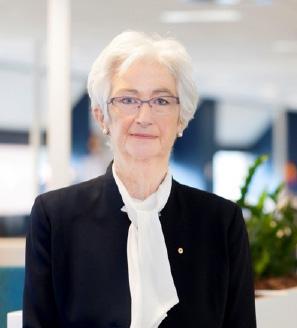
The Commission’s work was an examination of a range of institutions in which children were sexually abused, but it was also an examination of allegations of widespread institutional failures and practices and cultures that provided cover and protection to perpetrators, either inadvertently or intentionally and in many cases, failed to respond appropriately, if at all, once aware of such abuse.
The Honourable Jennifer Coate AO, currently Acting Chair of the Victorian Law Reform Commission, has held many judicial appointments over the last 27 years, including Magistrate, Deputy Chief Magistrate, the inaugural President of the Children’s Court of Victoria, Judge of the County Court of Victoria and as the first woman in Victoria to be appointed as State Coroner. Justice Coate was appointed a judge of the Family Court of Australia in January 2013 and thereafter released to the Royal Commission into Institutional Responses to Child Sexual Abuse, where she served as one of the six Royal Commissioners for the entire period of that Commission.
Bookings:
Phone: 03 9347 3428
Email: membership@graduatehouse.com.au
RSVP by: Monday, 15th April 2024
Please
Prices:
Combo Cost $20 (includes nibbles/drink and attending lecture)
Virtual: Members $10/ non-members $15
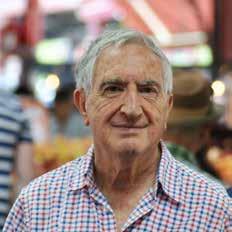
Wednesday, 1st May
Professor Poulos’s talk will focus on his latest book, Obesity in the 21st Century. In recent years, the focus of obesity prevention has been on diet. However, diet is only one of many factors which play a role in the development of obesity. This book looks at these factors and the latest research on how they contribute to the development of obesity, and the many different methods that have been and are being used to treat and prevent obesity.
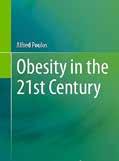
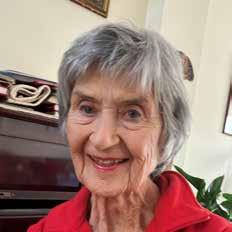
Thursday, 16th May
Dr Harney’s topic is Artificial Intelligence: A philosophical perspective. Maurita is a philosopher who has taught and researched philosophy at the ANU, at Swinburne University of Technology where she was Head of Philosophy, and at The University of Melbourne where in recent years she has been Honorary Senior Fellow (Philosophy)
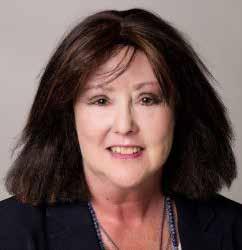
Thursday, 30th May
Ms Foster is a lawyer by profession with over 30 years’ experience in sports administration and governance at board level. No stranger to sport or high performance, she was an elite rower winning medals at the 1984 Olympic Games and 1986 Commonwealth Games.
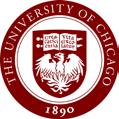

1155 East 57th Street
Chicago, IL, 60637
773.702.2550
quadclub@uchicago.edu
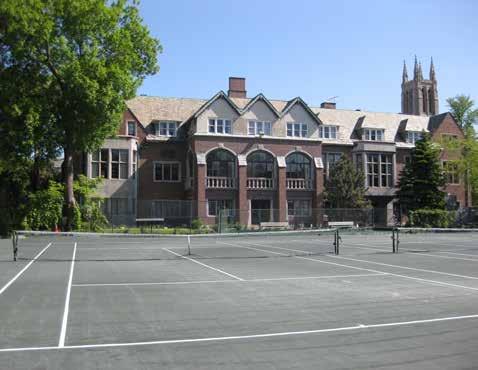
Located at the southeast corner of 57th Street and University Avenue in Chicago, The Quadrangle Club is privately nestled in the heart of the University of Chicago campus. The Club is walking distance from the heart of Hyde Park; a historic stretch called 53rd street, bustling with shops, restaurants, and entertainment.
Given its centralized, yet private location, it has hosted a wide variety of cultural and community events exclusive to members and their respective guests, as well as broader gatherings for the University community.
Established in 1893, this historic membership club has played, and continues to play, an important role in the intellectual fabric and life of the University of Chicago. In its early years, the Club was home to large numbers of the faculty, when the third floor of the building mainly served as academicyear quarters for many teaching at the University. Over the decades, the Club has established itself as a space for convivial exchange between faculty and community members in a classic and engaging environment. As the years have progressed, the Club and its faculty have continued to sustain the historic and long standing traditions of its predecessors.
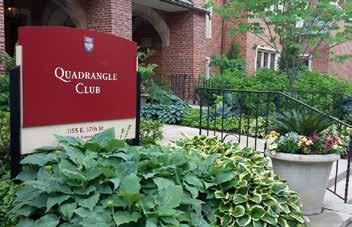
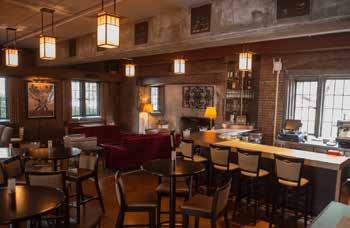
Today, The Quadrangle Club offers its members and their guests a full-service dining room, a bar, several lounges, and accommodation facilities for. It has 17 accommodation rooms, including 5 suites with an extra sitting room. It is one of the few locations in the city of Chicago that has green clay tennis courts.
The club features an array of authentic spaces that have hosted grand weddings, private member events, and intellectual University gatherings throughout the years. In addition to classic guest room accompaniments, offerings also include exclusive fine dining and catering services for members.
The Club houses a variety of room types (minimum 400 sq.ft/37 sq.m), namely, standard Queen, standard King, and an intimate selection of King or Queen suites with complimentary wifi, in-room dining services, morning coffee service, and a host of other comforting amenities to supplement their stay.
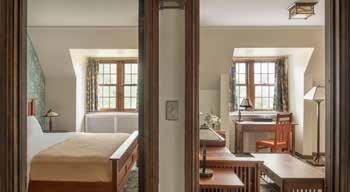
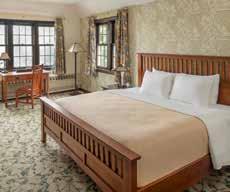
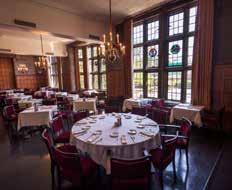
The Club offers several dining experiences throughout the facility. Seasonal breakfast and lunch menu selections on the second floor in the Main Dining Room space are available.
In the evening, Members can chose to unwind and relax in the transformative lounge space where weekly live music performances are hosted with access to a full bar and cocktail service.
The Quadrangle Club is an ideal venue for events taking place on the University of Chicago campus and around the Hyde Park area. The historic venue provides a unique setting for meetings, conferences, banquets, weddings, retirement parties, graduations, and holiday parties. There are six event spaces.
The Main Dining room is ideal for large banquets and receptions; with connections to the Solarium and Private Dining room.
The Lounge is the second largest space in the Club; featuring a built-in bar, cozy fireplace seating, and classic red-brick walls. Ideal for receptions, this space can be combined with other rooms to maximize attendance.
For more intimate space and private meetings/ meals, members can choose from a selection of private areas like the Private Dining room, Solarium room, the Library or Founders room.
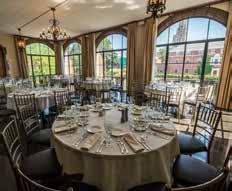
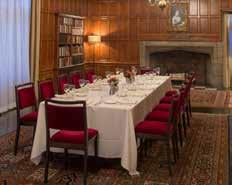
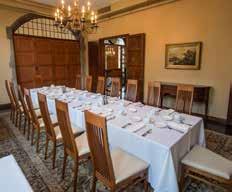
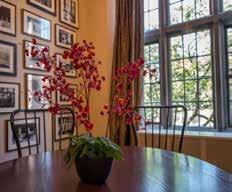
Our first collegiate event for the year kicked off to a good start with a well attended luncheon on Wednesday, 6th March. We were honoured to welcome author and keynote presenter, Julie Fisher who shared with us importance of inclusion, acceptance and connection in all aspects of life, in particular, in the world of the disabled.
Has life every thrown something your way that changed the path in which you thought you were heading?
That happened to me and my family and I will share this with you today.
Before I do, I have another question. Do you believe that the universe conspires to get you ready for things that are heading your way?
I do too and that happened to me two years before the life changing event that I will be sharing with you today.
In 2004 I met my friend Tina and her daughter Amy who lives with Down syndrome. At the time, we weren’t planning on anymore children.
Tina and I became friends very quickly and I used to love watching Amy in the playground. I was fascinated by her. Not because she had Down syndrome, but because of the way she played and interacted with everyone…just like all the other children.
I had never had disability in my life, and I wanted to learn more, so I started asking Tina questions about Amy. One of the questions I asked her was ‘what was it like to receive the diagnosis of Down syndrome after Amy was born?’
She responded beginning with, ‘don’t get me wrong when I say this because we have always loved Amy with all our hearts, but it was devastating and very emotional. Every time we told someone, there were more tears, and it took quite some time to come to terms with it all’.
I remember walking home that day thinking that if that were to happen to me, I would like to know before the baby was born. Little did I know…
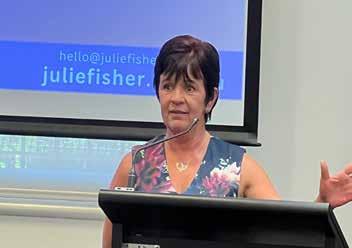
Fast forward to 2005 and I had become pregnant with our third child. After an ultrasound and a question of Down syndrome coming up because I’d found out about the markers for Down syndrome from Tina, we decided we would go ahead with an amniocentesis to learn if our child had Down syndrome or not. I must admit, I did have a gut feeling after that ultrasound that we would receive the diagnosis of Down syndrome which, after the testing, we did have that confirmed.
We did still go through the rollercoaster of emotions with tears, worry and concern of the unknown. We were also very lucky because Tina hosted a coffee/ support group and I was able to start attending this while pregnant. I was surrounded by other mums with children with Down syndrome from the ages of 1-7 and I was able to see how these kids interacted with each other and their mums. It was wonderful.
I was able to book my son into early intervention while pregnant as well as the paediatrician. So we were ready for when he was born. We were surrounded by very positive support which was great.
The other thing that we had to start to deal with was judgement from others and comments that really weren’t helpful at all. Comments like…I’m sorry – now I don’t get upset about this comment because to me, when people don’t know what to say, they say I’m sorry. I used to constantly tell people not to be sorry and that it would be okay.
Do you know they have testing for that?
Did you get tested?
He will be a baby forever.
There were more but these are the ones that stand out. Did you get tested ended up being a little favourite of mine because, of course, I could say yes, I did get tested. That would leave them dumbfounded and not sure of what to say next.
When Darcy was born and I began taking him out into the community, we experienced more of this judgement which was very hard.
Darcy was born into a world of people around him. I was running the local Auskick clinic, team managing my older boys’ basketball teams as well as coaching one of them, helping at the school and very active in the community. Everyone around us accepted Darcy for who he was as soon as he was born.
Others however, were not so accepting and it was very difficult to deal with. I used to react and I remember telling one lady she should take a photo so she could take it home and work out what she thought was wrong with my baby. My husband later told me she was probably looking at him because he was cute. I told him she wasn’t but deep down inside, I did know it was a possibility.
Reacting to people’s stares, points and comments was not great because it left me with a bad taste in my mouth and feeling awful.
As Darcy grew, he began to feel that negativity so I knew I had to change the way to deal with it. That’s where the smile towards others came in. Surprisingly, people would smile back which showed me they were just looking at Darcy, not staring. Those that were staring would bow their heads down and walk the other way.
It showed me that not everyone was being judgement like I thought they were. I realised that most of us, including me, look at people. People are fascinating. Darcy has taught me to smile, say hello or even compliment people I’m looking at. It makes such a difference. ‘I want people to know how their looks are perceived by me towards my son, which is why I encourage the smile’.
The other place where we felt judgement and had to advocate for Darcy was at school. Darcy did dual schooling through his primary years. He spent one day at week at the mainstream school and the rest of the time at his specialist school which was perfect for him. The mainstream school allowed him some extra days when there were exursions or specialty days and he and his friends loved this.
We were excited for camp that would be coming up in Grade 3 and we were talking about and planning it from the moment he began attending the school. His assistant was very excited for him and other kids about him attending camp.
The year for camp arrived and I competed the forms and paid the fee. Everything seemed as though it was going great.
Then I got a call to have a meeting with the deputy principal. She told me some of the teachers had concerns about him attending and thought that the best course of action would be for me to take him each morning and pick up each evening. I refused because this was like an excursion which he had already done many times successfully.
I answered all of the questions she had and we came to an agreement that if Darcy didn’t cope after the first night, I would pick him up. Now, this is in place for all the kids. I was happy with that and we agreed and the excitement began to build again.
A week before camp, the assistant principal came to me to ask what time I would be picking Darcy up on the Thursday (day after they left for camp). I was confused with his question and he asked it again. I told him I hadn’t had my phone call yet and he responded to that with confusion and a little concern.
I started to tell him about the agreement and he put his hand up to my face and told me not to talk to him about it and that he would go and find out what we had agreed on. I was so upset. I called the assistant principal and told her I would call the education department because he was being very unfair toward Darcy. She calmed me down and told me not to worry.
Camp came next and the assistant principal was going with them. I was so worried he was going to call me regardless of whether it was working or not. Thankfully he didn’t and when I went to pick Darcy up on the Friday, he was the first one off the bus and proceeded to congratulate me on what an amazing young man Darcy was. He said he did amazing on camp and participated in everything. My son taught this man an extremely valuable lesson and that is not to judge. From that day on, this man visited Darcy in the classroom every week and got to know him more which was wonderful.
I actually host a local disability expo at this school now and he is the man I deal with. I am so proud of Darcy and what he taught not only him, but many others at the camp.
Each year after that I did have to advocate for Darcy to attend, but thankfully each time, there was success and great learning for the teachers involved. My son has taught me so much about true acceptance and inclusion and about how important it is to be kind and see the person first before anything else. I get my message out with my books and talking to people and I can see that I am creating positive change for my son and others who live with a disability.
Are you a change maker? Will you join me to create positive change in the community?
Thank You Julie, for sharing your amazing journey and for giving us an insight into the world of disability. You have inspired us all. vvvvv
Our interview series continues with Emeritus Professor Martin Comte OAM (Councillor and Vice- Chair of The Graduate Union Council) and Resident member, Haoran (Tony) Fan.
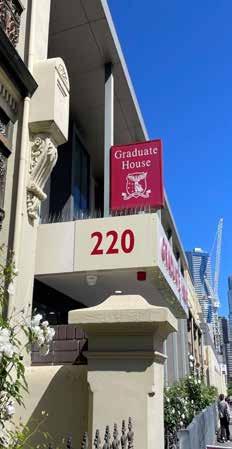
Many thanks for agreeing to be interviewed, Tony. I would like to cover three areas: your role over the past year as a Duty Resident at Graduate House, your acting position as President of the Graduate House Student Group, and your PhD research. But first, please tell me about your early studies in Melbourne.
I came here from Luoyang, in China’s Henan Province, when I was 17; I’m now 24. Before entering the university I enrolled in Trinity College’s Foundation Studies program and, after that, started my undergraduate studies at The University of Melbourne. Whilst studying for my Bachelor of Agriculture degree I lived in Trinity College for the first two years, and then, in my third year, I studied and lived in the university’s Faculty of Science Dookie Campus in country Victoria, between Shepparton and Benalla. It was a nice experience because it gave me the chance of having some social interactions during Covid and, being quite a small campus meant I got to know everyone. I got my driver’s licence during this period and was able to drive around. I then completed my Honour’s year in Dookie in preparation for enrolling in a PhD.
When did you come to live at Graduate House?
I came to Graduate House one year ago, at the start of my PhD studies.
And you were appointed a Duty Resident. Do you like it?
It’s good. I like helping people; it feels nice.
I understand that at the end of last year you took on the role of Acting President of the Graduate House Student Group until an election is held. What does the association do?
This is an interesting question to answer. Sadly, noone wanted to take on the role of President at the end of last year as people might not have known enough about the association or what it could do. The ‘election’ was done in a hurry, so might not be considered as a formal election. Although I am currently in this position and organising events, I think a formal election is still needed to let the residents elect people for each position in a more formal setting.
Would you like to introduce anything new to the role? Would you like to get the residents more involved in the life of Graduate House?
My experience of residential colleges like this is that when there is a President with strong ideas for involving people, many things can happen to make living in the college much more enjoyable. We’ll definitely organise events – the more the merrier. But at this stage we don’t have a full team.
We need to wait for the election before we can do much. But I really want to involve everyone. I want to listen to what residents want: I want them to give suggestions for things that we can do. Different things – perhaps things that we have never done before as well as things that have been successful in the past. We’ve had some interesting food events where residents introduced their food styles to others: we made dumplings together during Chinese New Year; this can be a fun weekend activity. Our residents represent so many different cultures and food styles; it would be nice to exchange cultural and life experiences in the process of cooking together. This is just one example. We also hosted lots of sports activities, such as football, frisbee and basketball, thanks to the excellent coordinating work of the Sports Coordinator of the GHSG, James Quang. There could be more events like ice skating, or going on excursions, or attending cultural activities or special events etc. It would also be a great learning experience for me to organise and coordinate such events; I hope to freshen-up my leadership skills when taking on this role.
I remember that when I was involved in residential colleges many years ago I sometimes arranged for residents to go on day trips – by bus or train. I often took students to places like Bendigo or Ballarat for the day and there were so many things to see and do – especially for international students who were fascinated with the gold rush period in Victoria in the 1850s. And regional cities like these also have excellent art galleries. But there are also wonderful things to do in and around Melbourne.
And I agree with you that it is important to acknowledge that not everyone likes to do the same things. What is exciting, I believe, is that you have such a richness of people from many cultural backgrounds to get to know. Of course, organising activities and events takes time, and this is why you need to have a strong and supportive team to work with. (And never neglect your university studies in the process!)
Tell me about your role of Duty Manager. What does this entail?
You are expected to be on call between 7.00 p.m. and 7.00 a.m. for one week, and on call for 24 hours on the weekend, and then you have two weeks off.
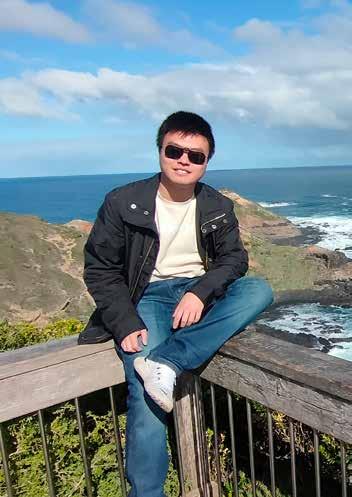
You could be woken up by someone at 3.00 in the morning?
Yes, sometimes. The calls that come in could be for many different reasons: someone might have forgotten or lost their keys and can’t get in; or it could be someone who is frightened by a mouse! Sometimes people call with problems that I cannot solve, which can take a bit of effort in explaining why I cannot help them. But the positive thing is that we are a graduate college and generally don’t have some of the problems that they have in undergraduate colleges with younger residents.
One of the many advantages of living in a residential college I have found is that a wonderful sense of community can develop –and no-one has to feel alone or lonely. But, at the same time, it’s also important to maintain a sense of privacy if you wish. I believe it’s important that everyone feels part of a community, but can decide for themselves how much or how little they want to be involved. Yeah! That’s it.
I’m interested in your PhD research.
My research is about static system pastures –and dairy pastures; multi-species pastures.
You will have to explain this to me.
Dairy farming is a big thing not only in Australia but around the world, and farmers are facing more challenges with this warmer and drier climate. In normal pastures for dairy production you have only grass, such as Rye grass, and if you want to be fancy, you put clover in it. Sometimes you could also put in herbs, which are the nongrass, non-legume pastures, including chicory, plantain etc. My project focuses on a situation in which we sow them all at once: have grass, clover and herbs together in one paddock, and this can be called multi-species pastures. People found that these multi-species pastures work better in stressful conditions, require less synthetic nitrogen fertilisers, and should perform better against this changing climate with more drought and heat than traditional grass pastures. Climate change is urging us to make a transition, but at this point, we don’t know which system will work best.
This is a knowledge gap and the government and major organisations are putting money into relevant research. There’s a great complexity to the problem, and at this stage, we can’t reliably decipher why one approach or system is better than another. In our project we are looking at the root interactions of different species that are sown together in a mixture.
What would you like to do after you complete your present research and your PhD?
I’m learning about the different options of what can be done to grass and pasture, and I would like to apply my knowledge to the Australian dairy system. I want to keep researching in this industry area. There’s still so much to be done.
Tony, I’ve so enjoyed talking to you about your role as Acting President of the Graduate House Student Group, your role as a Duty Resident here, and your PhD research. I wish you every success in the future. We’re fortunate having you living here and contributing so positively to our Graduate House community.
vvvvv
One of the service organisations that meet regularly at Graduate House is the Soroptimist International Melbourne Club. This group of women of diverse professional and business backgrounds have been active in the Melbourne community for more than 75 years. Among the women who were the founding mothers of the Club were lawyer Joan Rosanove QC who became Australia’s second woman Queen’s Counsel, and Dr Margaret Blackwood, a botanist and plant geneticist who became first woman Vice Chancellor of The University of Melbourne. For them, belonging to a service organisation was a way of building into their busy lives; a way of learning from others, engaging in community service projects and having contacts in many different countries that share an interest in the objectives of the organisation — improving the lives of women and girls, hence summed up in the motto Educate, Empower, Enable!
In January 2024, members enjoyed an informal discussion about mentoring. Stories were shared about, like being encouraged in one’s life by an older family member, and also the way in which parents might try unsuccessfully to guide a daughter into being a certain type of adult!
Some spoke about the way in which they had mentored others in their working lives. Others recalled how others had helped them take up new roles including as being Soroptimists. A United Kingdom visitor, Lyn Shiel from Soroptimist International of Tamworth spoke about their use of a Buddy System to help members who volunteer taking up positions of responsibility.
Other international perspectives were presented by SI Melbourne members Yoko Mukai-Campbell, Lucy Jepchirchir from Nairobi, by Graduate House residents Esther (Eun Hye) Lee from Korea, Hiraku Sato from Japan and by another
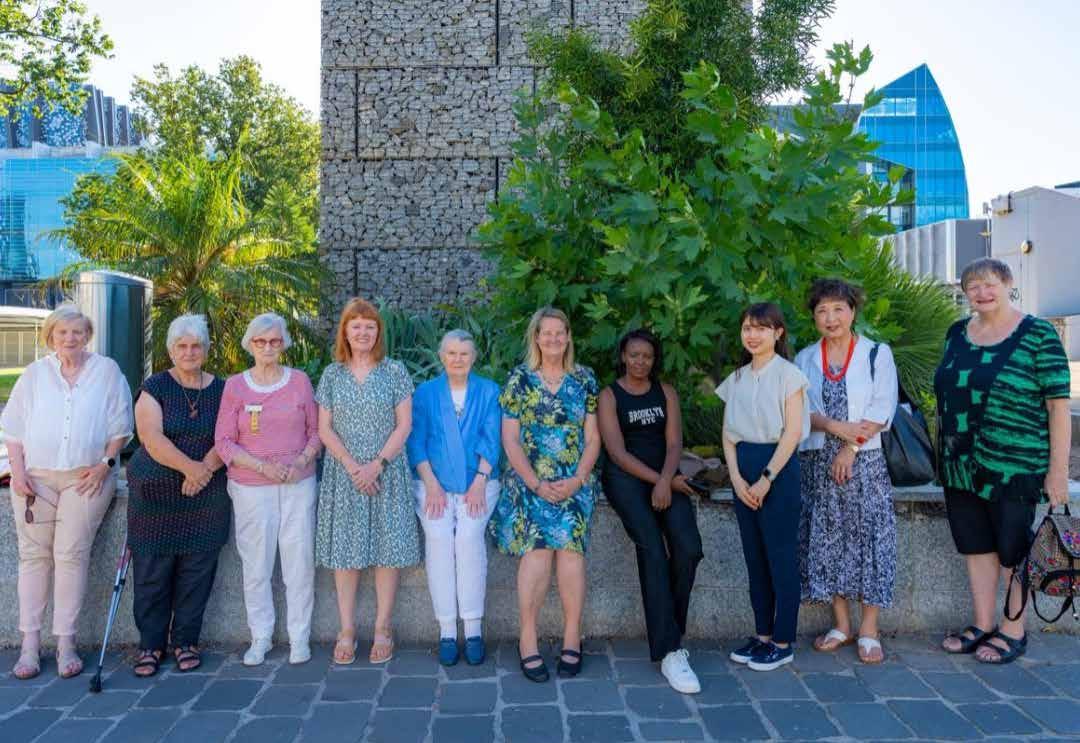
visitor Sankhaja Gunathilaka who spoke about her work experience placement with the Human Rights Commission of Sri Lanka (HRCSL), Regional Office in Kandy. https://www.hrcsl.lk/contact/regional-offices/
At the February meeting, congratulations had been sent to Dr Emily Roycroft, a former student from The University of Melbourne, now on a postdoc at Division of Ecology & Evolution, Research School of Biology, ANU College of Science and had been in the news about the discovery of two new Australian mammals. https://theconversation.com/ we-discovered-two-new-australian-native-mammalsthe-first-of-their-kind-this-century-223740
She had replied “I will always be so grateful for the support of the Soroptimists and the Dame Margaret Blackwood Scholarship - it was so impactful for me at a really crucial part of my early career”.
In April, a talk will be given by one of the 2023 recipients of the Dame Margaret Blackwood Award, Bridget Walker, who’s PhD project is an
investigation of transcriptional regulation of carbon metabolism in fungi, at the Andrianopoulos fungal genetics lab.
Fungi are extremely good at adapting to different nutrient sources which enables them to survive in even the harshest of environments. This ability is especially important for fungi which cause human diseases, as they are often faced with nutrient limitation within the host. Some disease-causing fungi are still able to thrive and cause life-threatening infections despite the human body’s defences which attempt to starve foreign invaders of key nutrients. My research investigates how these disease-causing fungi regulate their metabolism in response to nutrient availability.
Storyby: Sheila Byard OAM (03 93767870/ mobile 0439 365 688) vvvvv
In 2024 The University of Melbourne’s Faculty of Business and Economics will celebrate its centenary, looking back on what has brought them from its founding to today.
As part of the celebrations, the faculty will be covering one hundred years of triumphs and challenges, honouring the key people and events that have made an impact across the world. Shirley Horne’s legacy will be one of 100 different stories highlighted with this project, and will be published in October this year, a century on from the faculty’s founding.
If you’re an alum with the Faculty of Business and Economics, have memories or photos to share, or simply have further questions, you can find more information and get in touch at fbe.unimelb.edu.au/centenary.
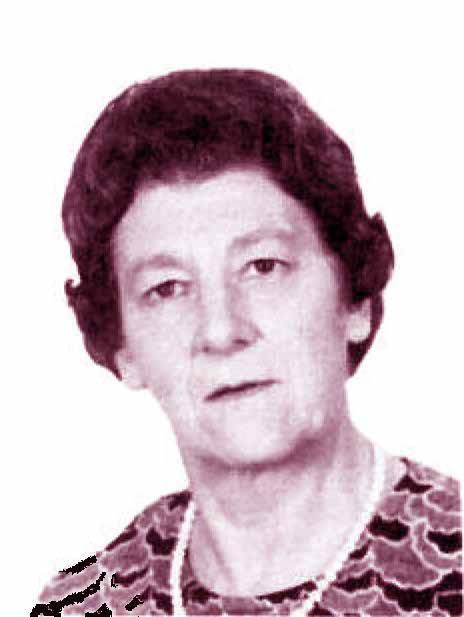
Born and educated in Melbourne, Shirley Horne developed social justice attitudes early and her life’s work was spent leading, advocating, and forging social reform which left lasting legacies. When she was an economics student in the 1930s and 1940s, only 20 per cent were women, compared to arts with 50 per cent. Passing the Diploma of Commerce and then a Bachelor of Commerce, her final year’s degree subjects were Statistical Method, Public Finance and Economic History. as well as an extra single subject, Industrial Relations. Altogether these subjects proved a strong foundation for her first employment as a researcher in the new Commonwealth Department of Social Service. In 1951, she was awarded a United Nations Fellowship that enabled her to examine welfare systems for a year in England and Scotland.
Upon her return she married Allen Horne but was immediately demoted; at the time married women could not be permanent in the public service and therefore could not hold substantive positions. Until then, Horne’s career had been progressing very well. Though always committed to social justice, this unexpected personal experience set her on the path to spend a lifetime as a women’s rights advocate in the community and in her leadership of community organisations.
Volunteering kept her busy, but she continued to work, leaving the public service and beginning a second career after she married. In 1962, she joined the staff at the Department of Social Work at The University of Melbourne, first as associate and then a senior fellow.
In 1978 she added to her qualifications and passed the Diploma in Public Policy from The University of Melbourne. She regularly authored and coauthored academic and community publications, mainly in social welfare. 1983 saw her appointment by the premier to the Bush Fore Appeal Trust after the devastating ‘Ash Wednesday’ Fires. While in this role, Horne authored an influential report on the operations of the Bush Fire Appeal 1983 Trust Fund.
On government Boards and Committees, she made an impact in both Victoria and nationally. In 1969 the National Council of Women Australia (NCWA) was one of five women’s organisations granted leave to intervene in the 1969 case for equal pay brought before the Commonwealth Arbitration Commission. The Arbitration Commission responded that it would give equal pay for ‘work of the same or like nature and equal value’ but qualified this with the provision that equal pay was not applicable where the bulk of the work is essentially or usually performed by females. i However, that meant that most women workers were excluded in Australia’s sex segregated work force. So, in 1972 Horne took another case to the arbitration commission on behalf of the NCWA. Largely based on Ada Norris’s research, Horne’s case stated that ‘it was estimated that only 18.24 per cent of the women in the work force now receive equal pay’. ii Then in 1974, at last a single adult minimum wage was conceded - though as we know the fight for equal pay for all continues still.
As one of three members of Victoria’s pioneering Equal Opportunity Board in 1979 Horne dealt with the landmark sex discrimination case of woman pilot Deborah Wardly versus Ansett Airlines. The major airline refused to employ her though she was highly qualified. The Board found in Wardley’s favour and declared that Ansett’s refusal to employ her was illegal. The airline appealed but the High Court dismissed the case in 1980. Since then, Deborah Wardley has flown and captained the largest passenger planes all over the world.
In 1981-82, Shirley Horne advised in the preparation of a submission to the Premier for a review of the status of Women Elected in Local Government in Victoria. Skilled in writing applications, she gained two grants while the President of the League of Women Voters Victoria. The first was in 1986 from the United Nation’s International Year of Peace program, which
produced A Great Idea authored by Margaret Geddes, featuring members of parliament and the history of peace activism in Australia. The second was in 1988 from the Bicentennial Funds, that produced the film ‘Women in Parliament.’ Horne is one of the speakers in the film.
A member of Graduate House since 1953, Shirley Horne was the first woman appointed as Chairman (1987-1990) in its 100 years. Her time in the role was challenging. She diplomatically described her experiences in her Chairman’s Report and could claim important advances supporting international students, gaining maintenance grants and amendments to the Union’s Articles of Associations and finding further clarity of the Union’s relationship with The University of Melbourne by its new Statute of Affiliation. She was a founding member of the Women’s Forum, which still meets regularly at Graduate House. The Union’s valete in 2007 followed her diplomatic tone by suggesting that ‘her period of involvement in the governance of the Graduate Union had enough drama to satisfy any aspiring high achiever.’ iii
Additional community leadership activities were:
• President of Melbourne YWCA (1962-65) and YWCA Victoria (1977-80),
• Membership of the Commonwealth Social Security Council (1973-4),
• The Victorian Committee of Enquiry into Childcare (1979-82),
• The Social Security Appeals Tribunal (19821990),
• The Victorian Women’s Advisory Council (198385),
• The Winston Churchill Trust (1987- 1990) and
• The Ministerial Advisory Committee on Social and Community Issues re Gaming (1994). Shirley Horne’s influential community work was recognised in 1988, with the Member of the Order of Australia (AM) for service to the community. In 2004 she was added to the Victorian Government’s Honour Roll of Women.
Her papers are in The University of Melbourne Archives.
Footnotes:
i Marian Quartley and Judith Smart (2015), Respectable Radicals, A History of the National Council of Women of Australia 1896-2006, Monash University Press p. 306.
ii Op.Cit. p.307.
iii Valete, Mrs Shirley Horne, from information provided by Anne Richter and Sheila Byard, The Melbourne Graduate, August 2007, Vol 60 no 3. P. 2.
vvvvv
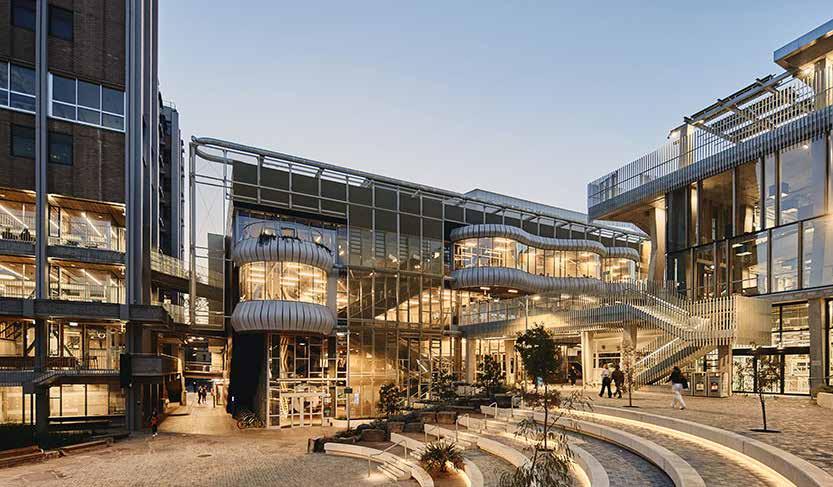
The University of Melbourne (UoM) is throwing open its doors to the inner-city community to come and experience its new arts and culture precinct on Swanston St, with an engaging first-year program of public shows on offer.
In an exciting addition to the university, as well as the immediate precinct in Carlton in particular, the series of new and revamped arts and cultural spaces offer more state-of-the-art assets to Melbourne’s world-class creative industries.
Located next to the No. 1 Swanston St tram stop, minutes from Lygon St, the precinct includes three main venues: the new Union and Guild Theatres at the $70-million Arts & Cultural Building, the magnificently-restored Art Deco Building 189 and the open-air Amphitheatre.
This 6-Star Greenstar New Build precinct has already been recognised with multiple wins at the Australian Institute of Architects and the 2023 Good Design Awards, and will soon be complemented by a redeveloped Ian Potter Museum of Art just a stone’s throw up Swanston St.
Designed for both students and the wider Melbourne community to enjoy, The University of Melbourne Arts and Culture (UMAC) has announced a variety of public shows taking place at its new performance spaces in 2024.
UMAC is being led by UoM performing arts director Virginia Lovett, who formerly served as executive director and co-CEO of Melbourne Theatre Company and executive director of the Melbourne International Comedy Festival.
Ms Lovett and her team will curate an annual program of major contemporary works, activating these civic, cultural spaces to the CBD’s north and offer a new destination for arts lovers and artists. These venues are surrounded by a range of dining options at the University and are just a short walk away from one of Melbourne’s most renowned culinary strips on Lygon St via Faraday and Elgin streets.
Ms Lovett said that UMAC sought to co-present with the city’s major festivals and events to “reinforce the university’s place as a leader and contributor to Victoria’s creative industries and Melbourne’s global reputation”.
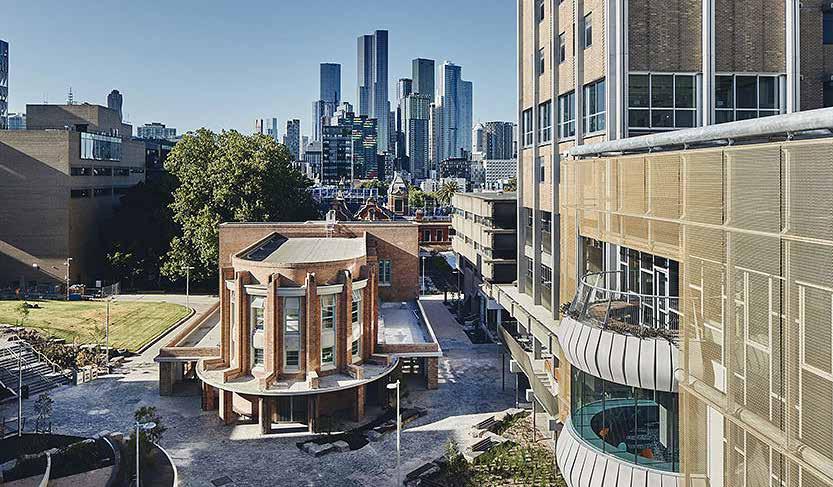
“Students will now have the opportunity to experience world-class productions as part of their university life,” Ms Lovett said.
“Together with the long-held tradition of theatre presented by the student union during semester, the annual UMAC program will ensure these venues are operating year-round, embedding them into the life of not only the student but the city.”
Headlining UMAC’s 2024 program is the Victorian premiere of Counting and Cracking as part of RISING from May 31 to June 23 at the Union Theatre.
Since its debut with Belvoir at the 2019 Sydney Festival, the gripping Sri Lankan-Australian family epic has been showered with accolades including eight Helpmann Awards and the Victorian Premier’s Literary Award for Drama and the Prize for Literature.
“Counting and Cracking is exactly the sort of show we want to present at UMAC – important, transformative, and community-driven with brilliant storytelling. This is just one of many projects we look forward to welcoming audiences to at the wonderful arts and culture precinct at the University,” Ms Lovett said.
Other productions this year will include:
Britney Spears: The Cabaret (April 18 and 19, Union Theatre) starring Christie Whelan Browne as part of the Melbourne International Comedy Festival.
Pieces (November, Union Theatre), a large-scale cocommission with Lucy Guerin Inc showcasing bold new contemporary dance works.
Victorian Opera’s English Eccentrics (July 4 to 6, Union Theatre).
The unique song cycle Spinifex Gum (November, Union Theatre), featuring the award-winning Marliya – a Cairns-based ensemble of Aboriginal and Torres Strait teenage singers.
Complementing the 2024 program will be a series of public talks and events which will take place at Building 189’s Market Hall and in the Amphitheatre, including Coffee and Conversations presented in partnership with Readings.
Source of story:
https://www.innercitynews.com.au/university-ofmelbourne-unveils-new-arts-and-cultural-program-atparkville-campus/ vvvvv
We were delighted to have been hosted by Graduate House for our recent annual dinner and the 50th oration of our society.
The Australian Chapter of the Joseph Crabtree Foundation was established by Professor Arthur Brown from Monash University in 1975 and a group of eccentric academics who enjoyed levity, laughter and an affinity for preposterous ideas. Its origins go back to February 1954 in England when Professor James Sutherland, Lord Northcliffe Professor of Modern English Literature at University College London, delivered an oration entitled ‘Homage to Crabtree’. Many details of Crabtree’s life and contribution to scholarship and inventions crossing several diverse fields had been lost through the machinations of time. Ever since, the Foundation has been dedicated to researching and publicising the life and work of Joseph Crabtree (1754-1854), genius and polymath. The website of the Australian Chapter notes that “Crabtree’s achievements have been grievously overlooked, misinterpreted, occasionally traduced and in some cases quite deliberately suppressed …”.
In addition to the Melbourne Chapter of the Foundation there is one in Italy, and was, for some time, a South African Chapter. To quote from the Australian Chapter website again: “Each chapter typically meets annually on the Wednesday closest to Saint Valentine’s Day, the day of Crabtree’s birth, for a dinner and an oration by a distinguished scholar on some hitherto undiscovered aspect of Crabtree’s career and genius. Their findings have established the international scope and diversity of Crabtree’s life and achievements.”
After meeting for many years at Monash Club (Monash University) our chapter moved in 2010 to Melbourne Savage Club, and subsequently the Athenaeum Club and then University House at The University of Melbourne. The Australian Chapter is seeking a ‘permanent’ home and was delighted to have ‘discovered’ Graduate House for this year’s oration, held on February 14th.
Graduate House’s facilities, excellent catering, most accommodating staff, and accessibility could not have been more appreciated by those who attended the 50th oration of our Australian Chapter, given by renowned Australian lawyer and scholar, Mark Williams (D.Phil., Queen’s College, Oxford
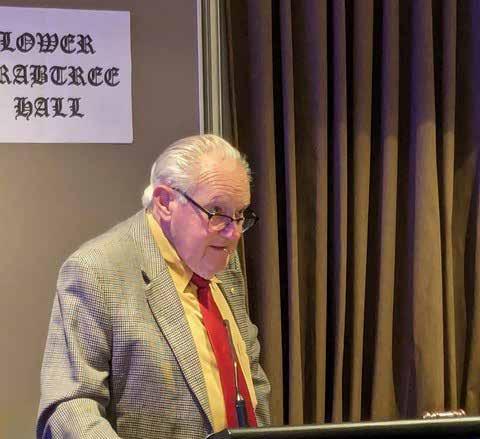
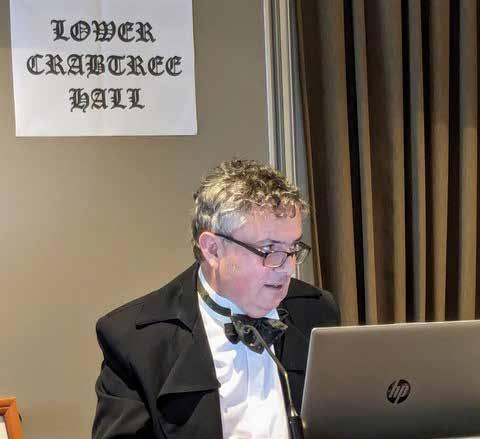
University). Dr. Williams diligently uncovered hitherto unknown aspects of Crabtree’s youth, as revealed in his oration: “Crossing the Line: Crabtree’s Polymorphous Personality: the Early Years”.
For those interested in attending next year’s oration (which we hope will again be at Graduate House) I invite you to contact me at: josephcrabtreefoundation@outlook.com
(I acknowledge the website of the Australian Foundation for much of the material presented here https://www. crabtreemelbourne.org Phil A’Vard, Hon.Sec) vvvvv
We thank the following organisations for their event bookings at Graduate House in January and February 2024
Advancement, Communications and Marketing
Australian Society of Music Education (ASME) Victorian Chapter - Council Meeting
Australian Psychological Society
Australian Veterinary Association (AVA) Victorian Division
Carlton Parkville Probus Club
Cell Therapies Pty Ltd - Cell Therapies Strategy Day
Construction, Forestry and Maritime Employees Union (CFMEU) Manufacturing Division
Department of Infrastructure Engineering Staff Meeting
Department of Social WorkPlanning day
Crabtree Foundation Lunch Faculty of Arts MATCH Project
Faculty of Medicine, Dentistry
and Health Services workshop
Graduate Student Association (GSA)
Health Economics Unit - Policy and Economics of Genomics and Precision Medicine
IMD Alumni Roundtable
Melba Group
Melbourne Medical School, The Department of Medical Education
Melbourne School of Professional and Continuing Education
Office of the Provost -Advancing Leadership Program
Order of St. John of Jerusalem Knights Hospitaller Incorportated
Parkville Conference of St Vincent de Paul
Per Capita Inc. - The John Cain Luncheon, with Julian Hill
Rosie made everything easy for us. She was so easy to communicate with, she made sure that the team could help me while she was on leave. The team at reception (Michelle, Iris) were super helpful, doing whatever they could to help and provide information to us. I am very pleased with how the team handled our requests and queries.
The room and spaces suited our needs, we had more people on Friday so the room was full, but there was enough space for people to move around. The Zoom session went well too. The morning tea, drinks, and lunch area suited our numbers too. Quantity was definitely a lot. We were initially worried that there won’t be enough food but during the event, the team kept refilling the food, making sure everything is of good quality, and that warm food stays warm. I would also like to note that some of the participants with dietary requirements appreciate how you put names and their requirements in their plates and wrapped them individually.
Massive thank you to Rosie, Bill, and to Michelle and Iris. I noticed during the event that the rest of the staff were helpful. They made sure the tables
Peter MacCallum Cancer CentrePeople Leadership Fundamentals
RACI Vic retirees group
Research, Innovation and Commercialisation
Researcher Developer Unit
Retired Veterinarians Group Luncheon
Rotary Club of Carlton
Soroptimists International of Melbourne Inc.
Stroke Association of Victoria
The Crabtree Foundation (Aust Chapter) - Joseph Crabtree Dinner & Oration
The Graduate Union Collegiate events and meetings
The Royal Melbourne Hospital (RMH) - Executive Strategy Day
inside the room are clean, refilled the water, and took out dirty plates. They helped us keeping our guests’ luggage and bags.
Thank you very much, Rosie, we all had such a great day and it was an absolute pleasure working with you and your team. In terms of feedback, our team were all really happy with the food you provided and shared that everything was delicious. I personally really appreciated how responsive the staff were, when I was asking for things like microphones and pens, it really just made the whole day run so smoothly. I’ve asked Felicity to use Graduate House again for our future events
Asami Koike MATCH Project, Faculty of Fine Arts and MusicThe function rooms and spaces at Graduate House were excellent, thanks. People commented on the lovely room and table setting. The food, both in terms of quality and quantity were equally excellent and the staff were most helpful and on time in delivering each course.
Greg Robinson, IMD Melbourne Alumni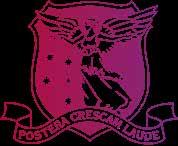
Melbourne Inc. 220 Leicester Street, Carlton, Victoria 3053, Australia
Telephone: +61 (0)3 9347 3428
Australian Business Number: 55 610 664 963
Incorporated Association Registration Number: A0023234B
ww.graduatehouse.com.au